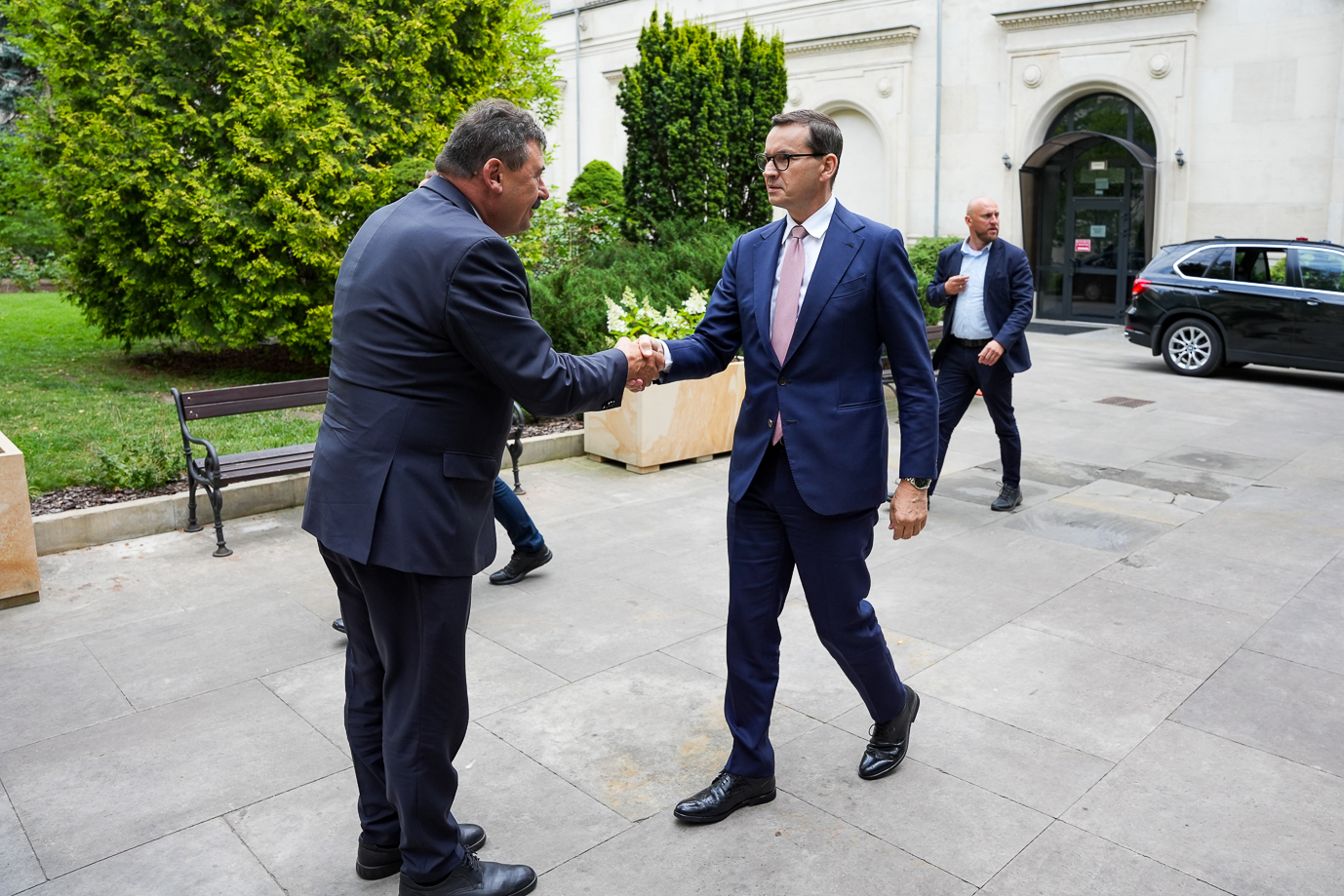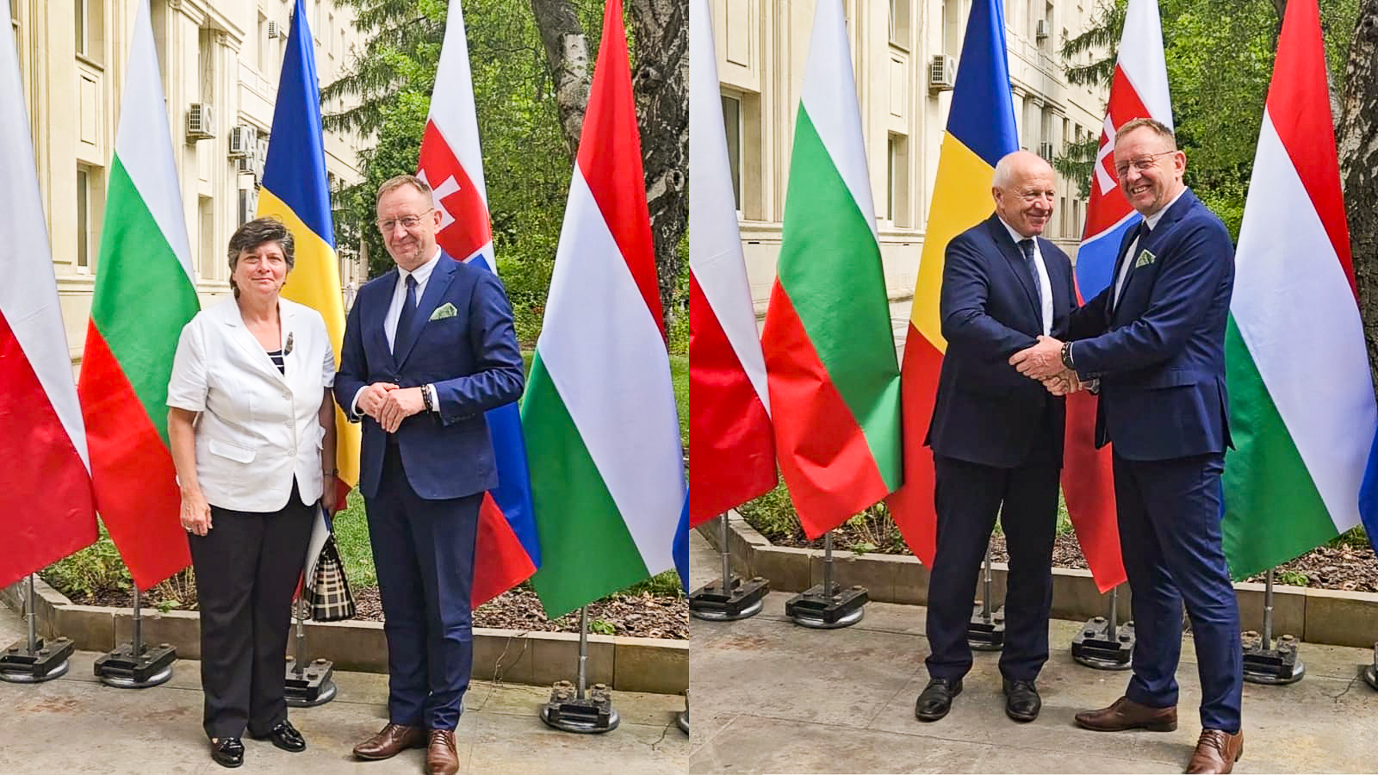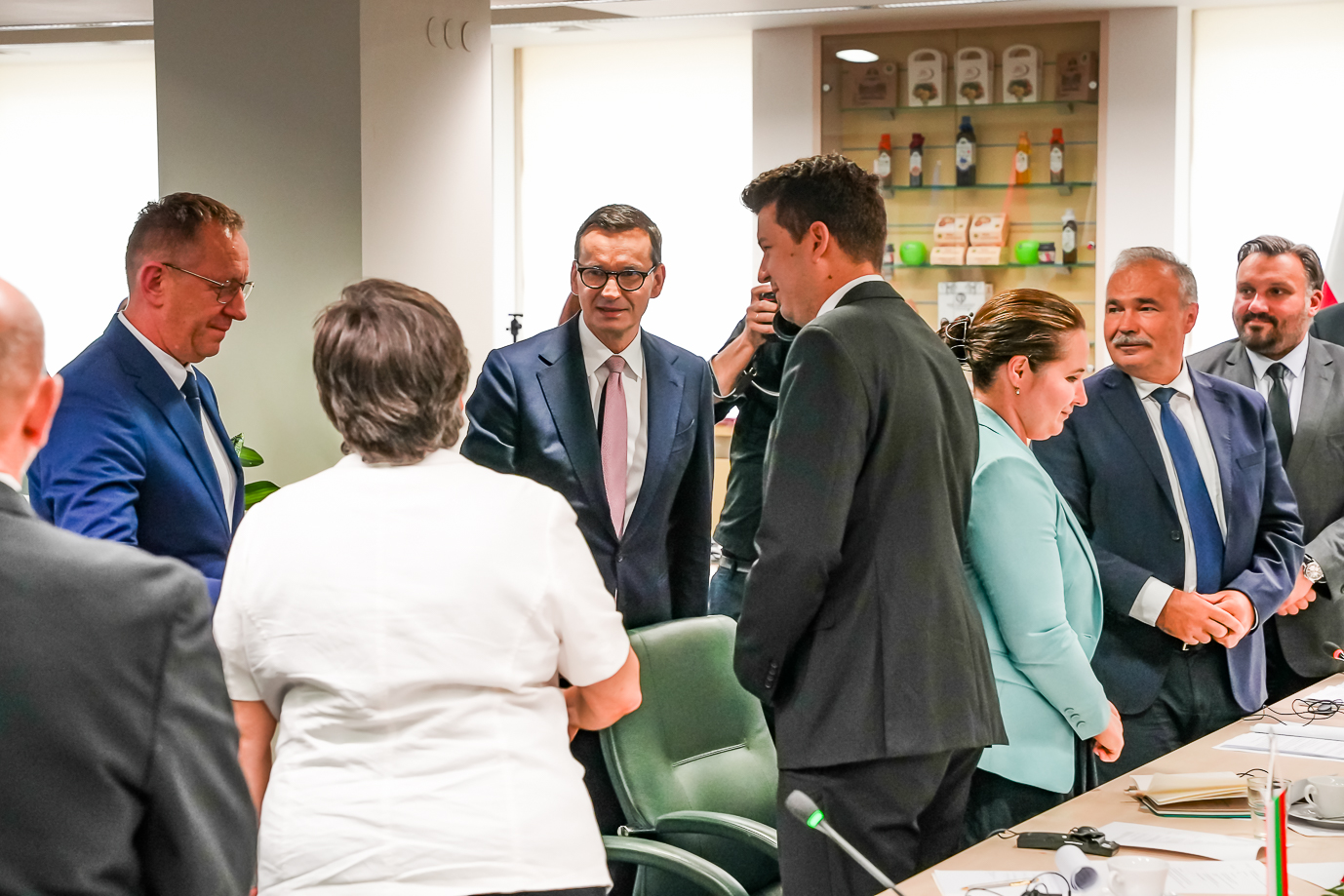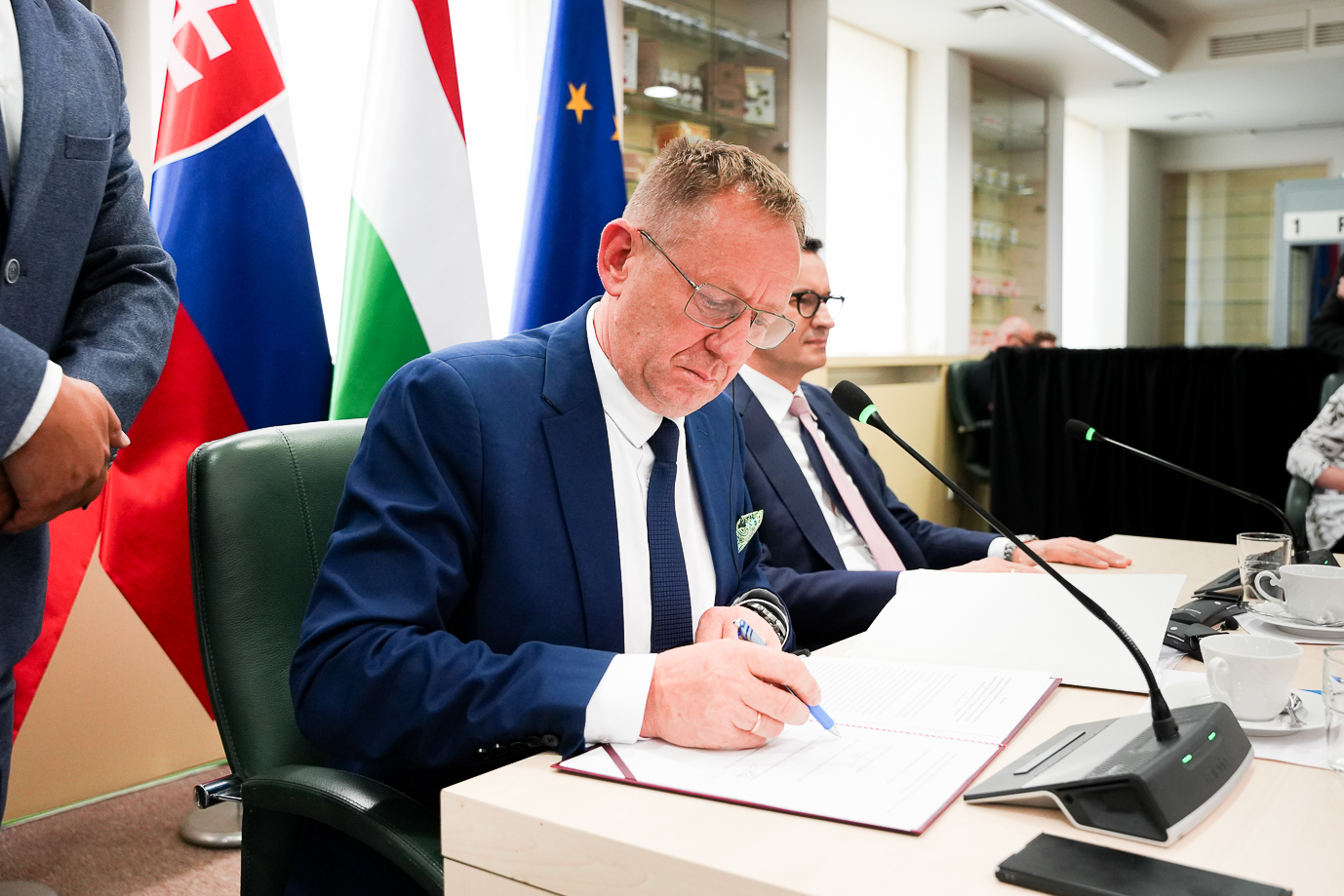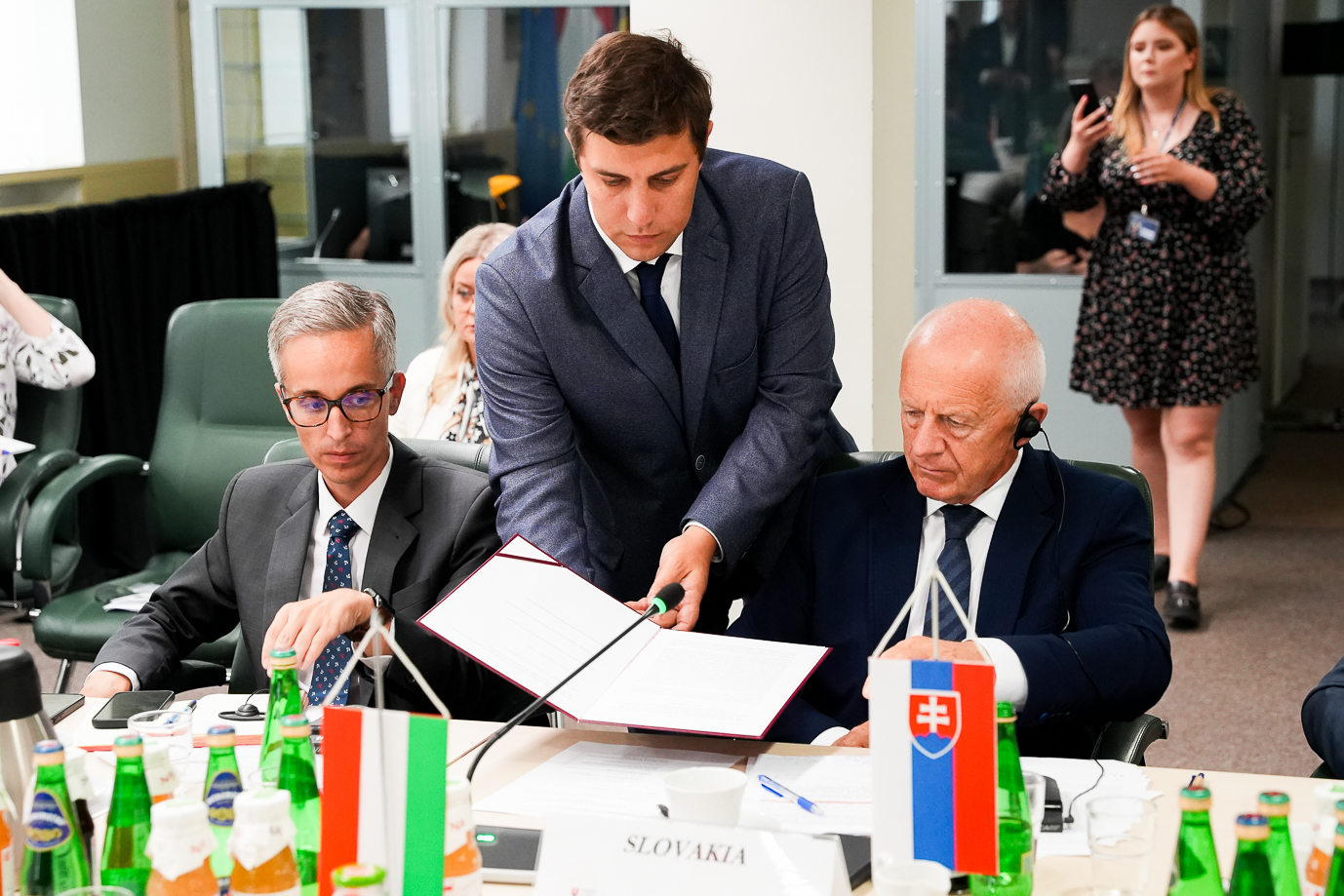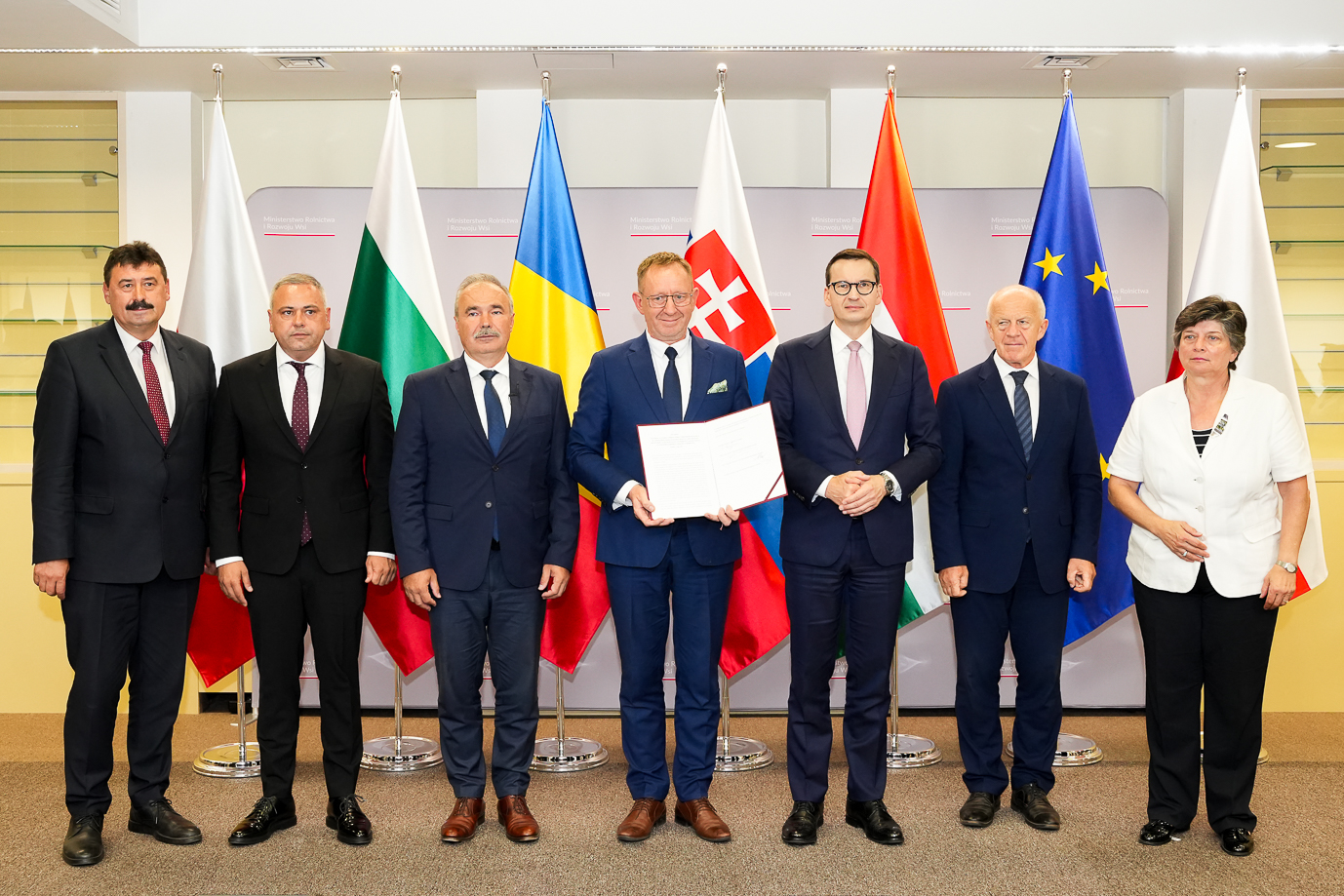Ban on Ukrainian grain imports – the position of the 'five' frontline countries
19.07.2023
'Today, we discussed the difficult situation caused by the war. It has destabilised agricultural markets in the frontline countries, Minister of Agriculture and Rural Development,' Robert Telus said after talks with representatives of the five frontline countries most affected by the disruption of agricultural markets due to excessive imports of agricultural products from Ukraine. 'We need to safeguard the interests of those who produce food in our countries,' said all participants in today's meeting.

'We are now facing further dilemmas. Under the decision of the European Commission, we are expected to open the borders for products from Ukraine on 15 September. We will not open this border. If the European Commission does not extend the ban – we will do it ourselves. I declare this right now," Prime Minister Mateusz Morawiecki said.
Today's meeting was organised on the initiative and at the invitation of the Minister of Agriculture and Rural Development, Robert Telus. Hungarian Minister of Agriculture István Nagy, Slovak Minister of Agriculture and Rural Development Jozef Bíreš, Romanian Minister of Agriculture and Rural Development Florin-Ionuț Barbu and Bulgarian Agriculture and Food Minister Kiril Vatev attended it. Prime Minister Mateusz Morawiecki was also present.
Common position
'We have prepared our common position. First, we demand to extend the ban on the import of four cereals from Ukraine to our countries. We jointly declare that we are very open to further supporting the transit of Ukrainian agri-food products,' stressed the Polish Minister of Agriculture and Rural Development.
The Ministers at the meeting signed a common position on the need to extend preventive measures on imports of wheat, maize, rape and sunflower seeds from Ukraine beyond 15 September 2023. The elaborated document will be presented at the EU Council of Agriculture and Fisheries Ministers in Brussels on 25 July 2023.
'From the perspective of the agricultural sector, the war in Ukraine is having increasingly serious repercussions on the agricultural market. The PIS Government has adopted the following principle: they must not be destructive to Polish agriculture. Otherwise, such factors must be eliminated or changed. This is why we closed the borders to products from Ukraine when they flooded and destabilised the agricultural market,' said Prime Minister Mateusz Morawiecki.
Robert Telus emphasised that the coalition of the five frontline countries was not directed against Ukraine, but working out long-term solutions for the benefit of both sides proved indispensable.
'The ban on the import of four kinds of cereals has had an unexpectedly good effect – a large increase in cereal transit. In January 2023, the transit of wheat and maize through Poland totalled 114,000 tonnes, in March 120,000 tonnes, and in June already 260,000 tonnes,' reported Robert Telus.
Meeting purpose
The meeting in Warsaw was a continuation of many months of intensive cooperation between the five frontline countries, which, under Poland's informal leadership, jointly advocated our farmers' interests before the European Commission.
The theme of the meeting was a discussion and exchange of views on the current situation in agricultural markets resulting from Russia's aggression against Ukraine and the possible measures to be taken to reduce the harmful effects of imports of agricultural products from Ukraine. Ministers also discussed the need to ensure fair competition conditions for farmers from our countries in the context of the prospect of Moldova's and Ukraine's accession to the EU.
Situation on agricultural markets
Ministers stressed that the considerable growth in imports of cereals and oilseeds to the frontline countries has led to severe market disruption. It has resulted in tangible losses for farmers, unprecedented logistical and infrastructural difficulties and social unrest.
'We need to respond to these problems, work together to mitigate the disruption of our countries' agricultural markets, improve the transit of Ukrainian products to third-country markets, and improve land transport. This is a question of the future of our countries' agricultural sectors and food security,' Minister Robert Telus stressed during the talks.
Participants at the meeting pointed out that the situation was only improved by the European Commission's decision on 2 May 2023 to impose a temporary ban on imports of selected categories of four agricultural products from Ukraine. The ban was extended at the beginning of June and is to remain in force until 15 September this year.
All Ministers unanimously indicated that this was not an action against Ukraine but about ensuring fair competition conditions and sustainable mechanisms for the future.
'The solution to the emerging problems in the markets of EU Member States should not be reduced to the extension of preventive measures for four grains beyond 15 September 2023. Comprehensive, win-win solutions are needed,' the Polish Minister pointed out.
Long-term measures
Minister Robert Telus underlined that the priority of our five frontline countries was to develop systemic, long-term mechanisms to ensure fair competition conditions for farmers from the EU Member States and candidate countries.
'Given the prospect of Ukraine and Moldova joining the EU, it would be appropriate to return to talks on the gradual deepening of the liberalisation of customs duties resulting from the EU-Ukraine and EU-Moldova Free Trade Agreements on a reciprocal basis. Such agreements would further bring the Ukrainian and Moldovan economies closer to the EU common market and contribute to a more balanced trade relationship,' Minister Telus stated.
'If there are signs of destabilisation in other agricultural markets, we will do the same for other products. There will be import bans on products and compensation for farmers. We never leave farmers on their own, and this will also be the case this time, for example, concerning the fruit market. We will protect other markets in the same way. It is not against Ukraine, but 'for' the Polish farmers we are protecting, ' Prime Minister Morawiecki stressed.
Solidarity among the countries of the region.
All Ministers unanimously stressed that unity and solidarity among European countries in the face of common challenges and threats is crucial in the current difficult geopolitical situation.
'We want to talk about problems and possible solutions. Our actions in defence of the interests of farmers from EU countries are not directed against anyone. They are an appeal for reflection and for appropriate, much-needed decisions on the part of the European Commission,' stressed Minister Telus.
'As long as we reported problems in our countries separately, there was no reaction from the EC. Our voice was only heard after the coalition was formed. I thank my Polish colleague, Minister Robert Telus, for that. Only a joint, solidarity-based approach is effective. We had to do so to protect our farmers and our economy. We decided to continue to work together as a coalition. If the EU does not extend the ban after 15 September, Hungary will put in place its tools to protect farmers,' pointed out Hungarian Minister of Agriculture István Nagy.
'I thank the Minister for managing the work of the coalition. Poland has been a leader in this discussion. I see our meetings as a sign of solidarity with Ukraine. We want to help Ukraine. Our countries are helping the most among the EU countries. We will do everything so that the solidarity corridors burden the states through which they run as little as possible. We must not allow the destruction of national economies. Safeguarding farmers is our duty as they ensure food security in their countries,' said Slovak Minister of Agriculture and Rural Development Jozef Bíreš.
'I am glad that together we have found an approach to solve the problems of agriculture in our countries. We are united to further support Ukraine in facilitating transit to further markets. We are part of the EU. Farmers in Romania have also been affected by the war. We will present our common position at the AGRIFISH Council meeting and to the EC. We want to increase the list of products from Ukraine subject to import bans. We are obliged to support those who produce food,' indicated Romania's Minister of Agriculture and Rural Development Florin-Ionuț Barbu.
'Thank you for the meeting and the opportunity to create a common position. I thank the Agriculture Ministers of the five frontline countries for the fact that we are united. Owing to our coalition, our voice is heard in the European Union,' concluded Minister Robert Telus.

